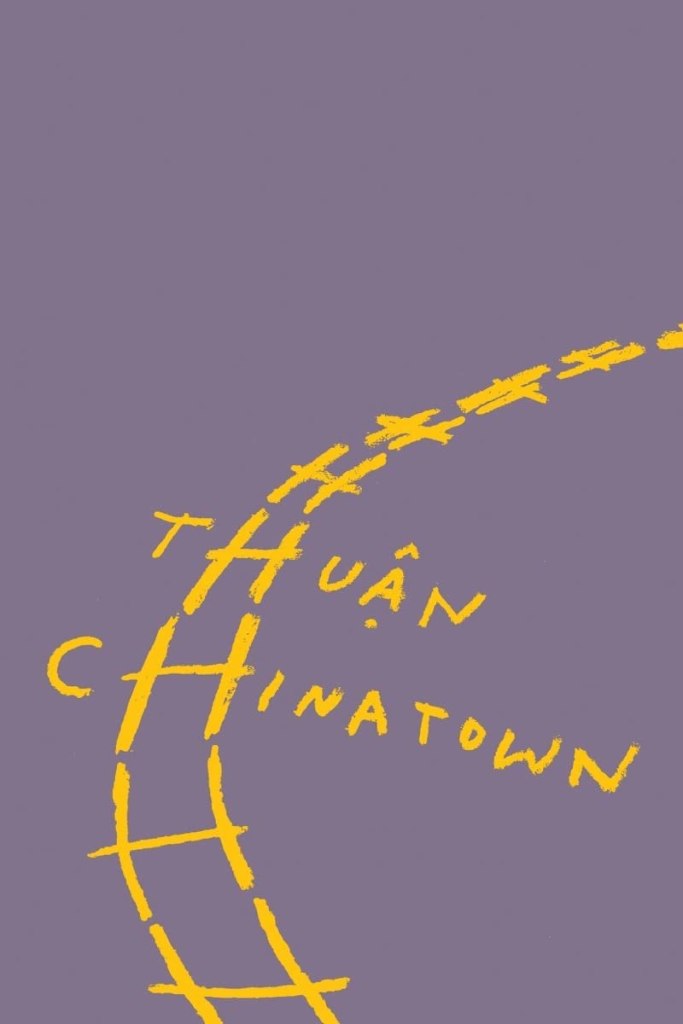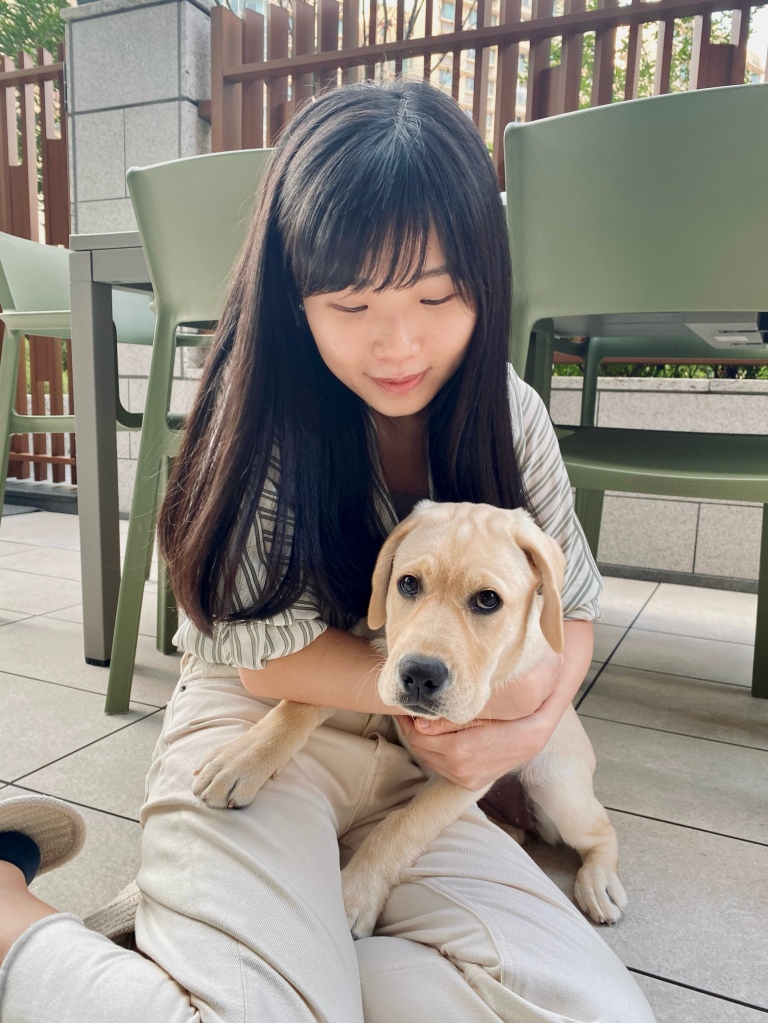📁RETURN TO FIRST IMPRESSIONS
📁RETURN TO CHA REVIEW OF BOOKS AND FILMS
Thuận (author), Nguyễn An Lý (translator), Chinatown, New Directions, 2022. 160 pgs.

A train in the Paris Metro is brought to a halt by a potential bomb threat. Her commute disrupted, the unnamed narrator of Chinatown begins a mental journey to her past as the suspicious bag awaits police investigation. What follows is an elusive and jumbled recollection of the narrator’s childhood in Hanoi under communism, her unfulfilling years studying in Leningrad for a “red diploma,” and her arduous job teaching in the suburbs of Paris as an immigrant. While the narrator’s internal monologue navigates vast networks of geopolitical events, including the Sino-Vietnamese War, the break-up of the Soviet Union, and the contemporary wave of global migration, what lies at the core of Chinatown is the life of the narrator, and her doomed romance with Thụy, her high-school sweetheart turned husband.
“I wonder if I should stay put and see,” ponders the narrator. More than her immediate reaction to the bomb scare, this thought may well be the narrator’s response to a greater mystery of her life—Thụy’s abandonment of herself and their son, Vĩnh, just a month after his birth. In the aftermath of the border war between Vietnam and China, anti-Chinese sentiment runs rampant. Though newly married at the time, Thụy, a Yên Khê-born Vietnamese of Chinese ancestry, “has no choice but to leave” (19) his young family in the increasingly Sinophobic Hanoi and take refuge in Chợ Lớn—“the most important Chinatown in the whole of Asia”, home to ten thousand ethnic-Chinese families (149). While Thụy’s departure is inevitable and his reasons justified, the shattering experience leaves the narrator in utter misery and bewilderment, so much so that she begins to see “Chinatown” as an unfathomable “final mystery” which keeps her mind paralysed (150). Twelve years after Thụy’s disappearance, she continues craving the truth of “where he was, whom he met, what he did, in those days” (20).
Nonetheless, the arrival of such truth is indefinitely delayed, ironically, by the narrator’s own reluctance in pursuing the truth. Fearful of facing Thụy and losing him again, the narrator refrains from any form of contact with him for a decade and more. On the one hand, the paradox exposes the internal chaos occupying the narrator’s wounded mind; but on the other hand, it is part of the writer’s aesthetic intervention, which aims to put readers’ patience to test. In an interview with Asymptote, Thuận reveals how she intends Chinatown to be “a direct experience of consciousness,” rather than a memoir of past encounters. In the novel, therefore, we come to see how the writer posits the narrator’s shifting, often contradictory thoughts and memories as strands, and weaves them into a complex narrative that frustrates and weighs on us. As the novel’s translator Nguyễn An Lý discusses, Thuận’s use of repetition is premised on a “copy-and-paste precision,” ensuring that “every single repetition in the original, whether a short phrase or a passage spanning lines,” is “an exact repetition” (Diasporic Vietnamese Artists Network). An example of the deployment of repetition is seen in the narrator’s first mention of Thụy’s hometown Yên Khê:
Yên Khê will forever remain the primal mystery. Yên Khê. He wasn’t born in Hanoi, in the national ob-gyn hospital like me, or, like most of the children on my street, the maternity clinic by the banyan tree of the old cow house. Yên Khê. […] Yên Khê was my last useless thing. Yên Khê was also my first sleepless night. Was it chance or was it fate. Yên Khê. (74-75)
As the stream-of-consciousness monologue unfolds, Thuận re-inserts “Yên Khê” towards the end of the text, as if to ensure the name seep more deeply into our mind:
I thought Yên Khê was fate. At twenty-eight I thought Chinatown was fate. Was it normal or was it not. Yên Khê is the primal mystery. Chinatown is the final mystery. (150)
In this series of repetitive, or, almost excessive mentioning of Thụy’s hometown, “Yên Khê” is transformed from a signifier of a location to an actual experience of the nexus of meanings surrounding it. Put another way, the repetition makes palpable the narrator’s initial passion for Thụy, as well as her disappointment and unceasing feelings of hurt after their separation. As a myriad of other keywords and phrases are likewise copied and pasted sporadically in the text, readerly experience becomes increasingly vertiginous and engulfing. Like what Thuận admittedly does, the text continues to “attack the reader, confront them, [and] suck them in” (Asymptote).
But even as the narrator’s mental unravelling easily drags readers into an unsettling fictional space, the writer makes deliberate efforts in pulling us back to reality. By adding sardonic remarks on how Vietnam and its people are usually perceived, Thuận reminds us of our distance and difference from the narrator—a Vietnamese single mother with a communist upbringing teaching English in Paris—whose life experience not many of us might share. The text is therefore more than an amalgamation of the narrator’s personal reminiscences, but also a site where the writer lays bare and interrogates common perceptions of Vietnam.
Specifically, Thuận makes her critique through a character named “the guy,” a French man who is romantically involved with the narrator. Despite his frequent travels to Vietnam, visiting as many as twelve times, he remains in the narrator’s eyes “a true tây ba lô, a ‘backpack westerner’,” with whom she fails to connect emotionally (6). The guy’s apparent interest in Vietnam doesn’t extend to the narrator’s cultural background either. Instead, he keeps making the same comment on her unique accent without probing more: “Your French is a jumble of accents. There’s Vietnamese. And then Soviet. And Hanoi. And Leningrad” (7).
Rather than expressing disapproval of tourists or criticising the tourism industry at large, Thuận illuminates the more mundane, yet realistic conditions of life in Vietnam hidden beneath the veil of fantasies about the place. The narrator shares with us a number of these situations, including how the idea of stress is deemed irrelevant to the Vietnamese people, who are often relegated to the third world:
My doctor says it’s stress. Public-transportation-induced stress. Three hours a day. Stress doesn’t exist in the Third World. Third-world people suffer from many life-threatening diseases but never from stress. […] Stress doesn’t exist in the Third World. Stress can only be cured by Vietnam. (5-6).
A similar thought resurfaces later, as the narrator makes a mockery on her “incurable condition” of reminiscing her past continuously:
My incurable condition will have to stay incurable, likely also staying outside the Ministry of Health’s lists for decades to come. But then I tell myself, such an incurable, outside thing is not meant to be treated. We had so many outrageous diseases in Vietnam and the USSR, yet we still survived. (62-63)
Perhaps Thuận’s career as a Paris-based immigrant writer from Vietnam, her former education in Russia and France, and her personal attachments to her homeland, have altogether given her a more comprehensive view of the interplay between nation, ethnicity, culture, and their nuances. Using the voice of the narrator, who has a background highly similar to her own, Thuận shares about the difficulty facing writers from “the Third World” with ingrained cultural assumptions at play:
Ten years later in Paris, I’ve come to know that other authors had great artistic traditions to back them up, whereas those from Vietnam, Laos, or Cambodia were only seen as representatives of the numerous wounds of war and poverty. (152)
Unbound by these limits, Thuận powerfully subverts readers’ expectations of Vietnamese literature in her work. Chinatown is at once a series of meditations initiated by a stopped train ride, and an ever-expanding web of painful experiences and emotions beyond the Vietnamese experience of collective trauma. The novel ends when the narrator’s watch reads twelve o-clock—two hours after the train came to a stop; but we get a sense that her train of thought, and Thuận’s own too, still goes on.
Works Cited
Nguyễn An Lý. “Against Textual Tourism: An Interview with Translator Nguyễn An Lý (Part One).” Diasporic Vietnamese Artists Network, 22 Sep. 2022.
Thuận. Chinatown. Translated by Nguyễn An Lý, New Directions, 2022.
———. “Only I Could Come Up with That: Thuận on Chinatown.” Asymptote Journal, 18 May 2022.
How to cite: Lee, Kammy. “On the Primal and Final Mystery: Her Mind Unravels in Thuận’s Chinatown.” Cha: An Asian Literary Journal, 19 Jun. 2024, chajournal.blog/2024/06/19/chinatown.



Kammy Lee is from Hong Kong. She majored in English at the Chinese University of Hong Kong and completed her MA degree in English Studies. Her research interests include representations of postcolonialism and its after-effects, traumatic inheritance, and narratives of violence. Currently, she has a growing interest in Asian-Anglophone fiction and poetry, and is working towards publishing more of her work. [All contributions by Kammy Lee.]



















